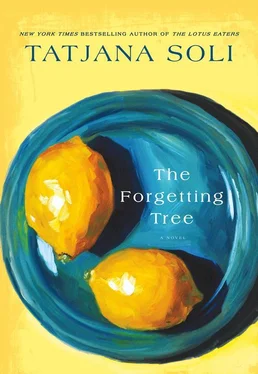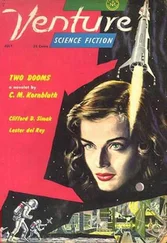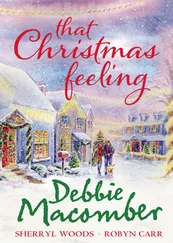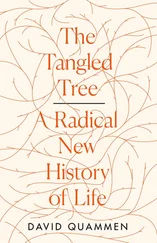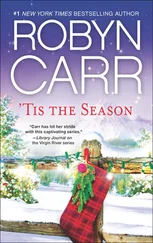“Please stop,” Claire said.
“Choices have to be made,” Gwen said.
“Leave it for now,” Forster said.
“But you said we should decide—”
“Not now.”
“What?” Claire asked. “What are you talking about?”
“The chemo, Mom.”
She felt a weight on her chest, the first hint of panic. “Stop at the bookstore on the way home.”
“We’ll do that later,” Gwen said.
“I want some new books for tonight.”
“You don’t have enough unread books?”
“She wants to stop, we’ll stop,” Forster said.
Gwen and Lucy gave each other the Crazy Mom look over the front seat. Turning into the bookstore parking lot, a young man in a pickup tailgated them, and Forster cursed under his breath. Claire turned around to watch the man through the back window. A manic thumping of bass from his car vibrated through theirs, boom, boom, booomm, a seismic pound, like blood slamming through one’s body, as he threw them the bird, irritated at their slowness. Her face burned — how could he be so rude, so stupid, didn’t he see cars stopped right in front of them, that there was nowhere to go — didn’t he understand that she was dying?
Claire had not acknowledged the idea of dying even to herself, so intent was she on getting home, on appearing to Forster and the girls, pretending a strength made up in equal parts of politeness, denial, and strange, wild longing.
In a hurry, the young man, so far removed from the idea of death that it mattered to him only that their car was blocking him from where he wanted to go, slammed on the horn. Would he act any differently if she told him she had cancer? As they pulled into a space, she rolled down her window.
“I’m sick!” she yelled.
“No shit, lady. How about getting out of the way?”
The girls, mortified, shushed and gestured quiet with their hands. Be quiet, be still, Mother . They collectively panicked at any sign of confrontation, violence.
Claire let out a few choice expletives, and the man made gestures, gunning his car, leaving them in a dust of exhaust fumes and burning rubber. Mother, the girls said. How could you?
* * *
Years before, playing her part of rancher’s wife, she had hosted picnics and hayrides on the farm for seniors, disadvantaged children, people with disabilities, sent crates of oranges, avocados, and strawberries, did her part as long as she herself could keep a distance, preferring to play the part of dutiful mother and wife, the friend who made casseroles, sent candy and flowers, found gifts that were neither too much nor too little. Able to take other people’s grief and misfortune and her own charity in bite-size pieces. But she had lost the taste for social niceties, now preferring gut-swelling confrontation, with all its dangers. Mom, you should never do that. No. Dangerous.
The girls could view Claire’s heart at will, as children always see through the deception of their parents. She appeared to them as wide-open and mundane as their living-room sofa, comfortable and a bit disdained for its utility. Since Josh’s death, they carried on the conceit that Claire was as self-sufficient and contented as they wanted her to be. A necessary blindness that each new generation took on, in order to concentrate its energies on the future, its own fate, rather than the past and its mistakes, the provenance of the parents. Claire accepted the fiction, but also knew that the past required just as much attention. Would not let them out of its grip until it received its due. Her daughters were still too young to know this.
“We’re just saying we want what’s best for you,” Gwen said, returning to her point as if the interlude had not happened. Patient and relentless as she was with her clients. Was that what they taught in law school?
“I’m going to the local hospital. I’m staying on the farm for treatments.”
The girls, united for once, frowned.
When they pulled down the long driveway and drove through the rows of grapefruit trees, Claire felt a flutter of life for the first time since before the winnowing of the illness started. Forster waved and walked down the path to Octavio’s outpost in the groves. Gwen yelled at Forster’s retreating back that he stay for dinner. Claire bent down and ruffled the fur of the neighbor’s dogs, endured their frantic jumping, noses and tails thumping against the dressing taped tightly around her chest, swaddling emptiness. That’s the way it felt to her, not a presence, death, squeezing against her chest, but rather a vacuum to be filled. Contact, touch, connection, the dogs were oblivious to the mortality that made her daughters’ touches shy. The sharp pain that was dull at the same time, promising a long, dreary convalescence, but Claire didn’t care as long as she was back home.
“This is where I need to be. This is where I’ll recover.”
“We understand,” Lucy said. But they didn’t. Lucy had never felt homesick for the ranch once she left, and only Claire’s insistence drove her back for visits. For the daughters, the ranch had always been a place of hard work and then later sadness. Neither of them had inherited Claire’s love of the land.
* * *
The possibilities had been mulled over privately between Lucy and Gwen for days. Lucy had a new job, albeit minimum wage, working in a gallery in Santa Fe. She’d lose it if she didn’t start right away. Also, there was no clinic close to her. Gwen had her job, a husband, and two children to think about, but Sacramento might be workable. Between her Kevin and her, they could handle taking Claire to her appointments.
At the kitchen sink, Claire turned the KÄLTE handle and let the water run a minute down the side of the sink before filling her glass. The water tasted icy, different from anywhere else, especially the lukewarm chemical flavor at the hospital. It came from their own well, a deep, artesian source that was drying up: traces of eucalyptus and orange and limestone, perhaps the mineral taste of bone.
As Claire drank glass after glass, dreamy, content, the girls circled round her, wary, waiting. She smiled, gulped air. At last she could breathe. Gwen took the role of leader. Claire nodded at the rightness of this, while water dribbled down her chin, sobered by this glimpse of the future once she was gone, the rude shock of the world’s reordering afterward.
“What are we going to do about the farm?” Gwen asked. “It’s getting harder for you to manage alone. Especially now.”
“Octavio is here.” Claire filled another glass to stall them, surprised that it had been brought up so bluntly, but to Gwen’s credit that was her way. When she was a little girl, she always found one and only one solution to whatever problem came up and stolidly clung to it no matter what. Living alone, Claire savored getting lost pondering the great infinitude of fixes available to any problem, basking in the possibilities rather than employing any single one of them and getting on with solving the thing.
With her strawberry-blond hair and creamy skin, Gwen had always been striking, and her deliberate adult dowdiness of flat heels and baggy dresses irritated Claire. A throwback to Hanni? Or was it due to the night of the attack? Did Gwen blame herself for Josh’s being taken? Or was Claire responsible, putting too much responsibility on her? Whatever it was, Gwen’s adult self seemed determined to drain the pleasure out of everything around her.
“The farm is fine,” Claire repeated. “But it’s time for one of you to come back.”
“What about the cancer?” Lucy said. Gwen frowned at her sister’s clumsiness.
“Am I going somewhere?”
Читать дальше
